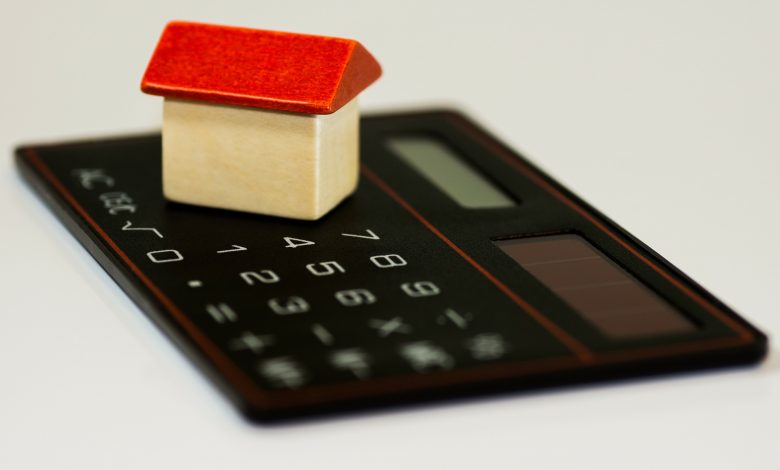What Is a Second Mortgage?

Did you know that it is possible to take out a mortgage on your home while another mortgage is still in effect? Many people use this to their advantage to do home renovations or even things that have nothing to do with the house.
There are usually many advertisements that attempt to entice you into taking out a second mortgage, and you are usually presented with the laundry list of benefits that are available if you do decide to take one out.
So the question here is, should you take out a second mortgage? While that is an excellent question, there is another that you need to get past first. Do you understand a second mortgage and the implications that it has?
You should never place yourself in any situation to make such a big decision without all the cards being on the table. Lucky for you, by the time you’re done reading here, the concept shouldn’t be a foreign one, and you should be prepared to make an informed decision. Remember that this is a loan at the end of the day. You can’t just take loans without a second thought, or you may be in for a very sticky situation.
Home Equity
You can’t understand a second mortgage until you’re able to paint the picture of home equity in your mind. What is the extent to which you own your home? This is where anything that you purchase via a loan can get a bit tricky.
If you were to use an auto loan to purchase a car, for example, the chances are that the lender would have the title for that vehicle. This is because ownership of the vehicle does not become yours until the loan is paid. This is the reason that repossession of the vehicle can be such a smooth process. On one hand, you did agree to use the vehicle as security, but on another, who can stop the owner of a vehicle from taking it?
There is a similar situation when you use a mortgage to acquire a home. Remember that a mortgage is a loan. In this instance, the home is used as security. There is a difference in the ownership dynamic here from the way it works with an auto loan. In fact, you could say that it works more to your advantage here.
Instead of not owning the home at all, the payments you’ve made at any point are totaled, and that figure tells you the portion that you own. So there is always a portion of the house’s value that you can say is yours, and you can use that portion for things such as a second mortgage.
If you’d like to calculate the value of the portion that is yours, there is a simple formula that you can use to achieve that outcome. Imagine that the home that you are paying for is valued at $300,000. For argument’s sake, you owe $100,000 on your mortgage.
Finding out your home equity is every bit as simple as you imagine. All you need to do is subtract the amount that you owe from the total value of the house. Using the example illustrated above, you get $300,000 – $100,000, which is $200,000.
Of course, the value of your home can decrease, which would throw a wrench in the numbers obtained from this calculation. Either way, it’s not hard to do a calculation with new numbers.
Equity can change in a few different ways. You should be aware of them, as you never know which one can present itself in your life:
- When you borrow against your home, equity is lost.
- When your home falls in market value, equity is lost.
- If there is a strong real estate market or you renovate your home, the equity is increased.
- Making monthly payments on your outstanding mortgage payments decreases the balance that is left on the loan, which means that your equity increases.

How Home Equity Creates Value
This is a simple liquidation process. If you refer to the example above once again, you’d have $200,000 in equity. You can do whatever you want with an asset, including liquidating it.
Another alternative is to take out a loan against the asset, which is a very common thing to do. All a lender needs is a level of security that all but guarantees that the provision of a loan is a safe thing to do. This is where your home equity and the second mortgage comes into play.
What Is a Second Mortgage?
A second mortgage is a loan that is like the one you used to purchase the home in the first place. After all, there must be another mortgage in place for you to be using the term second mortgage.
This loan allows you to ante up your home as collateral so that you can borrow a second loan. The uses of such a loan vary, and they can potentially have nothing to do with the house that the second mortgage was taken out for.
When you take out this mortgage, you borrow against the equity of your home. This means that if you should default on your payment, you’ll lose your wonderful home.
Types of Second Mortgages
A second mortgage can come in one of two different forms, which are outlined below:
Line of Credit
Borrowing via a line of credit is akin to using a credit card, though you don’t receive a physical one. Imagine that there is a pool of funds that you are given access to. There is never any requirement for you to take any money from the line of credit, but you can if you are so inclined.
The line of credit has a stipulated borrowing limit that you cannot exceed. You can always make repayments and borrow again when you wish. This allows for an immense level of flexibility since you can technically initiate a “loan” multiple times, assuming your repayment schedule is good.
Of course, there is an interest rate that is applied against the money that you take, but it is typically very low compared to that of unsecured loans or credit cards. Though the interest rates are known to be low, they are not fixed, so expect variation from month to month.
There is typically both a draw and a repayment period. The draw period is the time during with you can make withdrawals. Banks tend to be very big on allowing lines of credit based on your home equity. This is because people are statistically willing to do anything it takes to avoid foreclosure.
Home Equity Loans
This is the more standard form of a second mortgage. There is less flexibility here than there is with a line of credit since this option has more in common with a traditional loan. After getting approved for this type of loan, the entire thing is provided to you as a lump sum.
The interest is calculated at the time you are given the loan. However, the interest that you pay at any given time is based on any balance that is outstanding. The interest rate tends to be fixed with these loans. If it isn’t fixed, there is only minimal change periodically.
Advantages of a Second Mortgage
Here are a couple of advantages that are synonymous with a second mortgage:
Tax Benefits
While this does not always apply, it is possible for you to get a tax deduction based on the interest that is paid on your second mortgage. Note that tax benefits are not always clear where second mortgages are concerned, so you may want to ask questions to understand what benefits apply to you and how you can take advantage of them.
Loan Figure
Remember that these loans are secured by your home equity. Houses are not the cheapest things in the world, and once your equity gets to a certain point, it means that you can acquire very large loans. You may find that the figure that you can borrow with a second mortgage far exceeds anything that you could get with a standard loan type.
Interest Rates
Of course, second mortgages don’t come without interest. Be that as it may, the rates of interest offered by these loans are usually far more favorable than they are for other sources of debt.
The high interest rates offered by other credit sources, such as credit cards, are sometimes a reflection of the level of risk. There is a much lower risk associated with second mortgages since the home stands as security. This means that it isn’t uncommon to find that the interest rates are less than 10% for loan types that are based on home equity.

Disadvantages of a Second Mortgage
While a second mortgage is a favorable concept, there are downsides. Here are a few to consider:
Cost of Interest
Though the interest rates are lower than those of other sources of debt, the rates tend to be higher than those of your first mortgage. After all, there is more of a risk being taken than there was with the initial mortgage.
Potential for Foreclosure
No one wants to lose a home. This is especially true after the person has spent a long time paying for it. If you start defaulting on your payments, you may find that your lender moves to foreclose your home. You don’t ever want to not have a place to live, and this is the kind of risk that you run here.
It’s never a comfortable feeling to put your home on the line, nor is it worth it to do so for trivial reasons. Therefore, taking out a second mortgage is never advised unless you need to do something that is both expensive and worthwhile.
The Cost
As is the case with most loans, there are fees that you need to pay upfront to access the second mortgage. There are origination fees, appraisals, a credit score check, etc. The closing costs associated with a second mortgage can be ridiculously high, so be careful.



